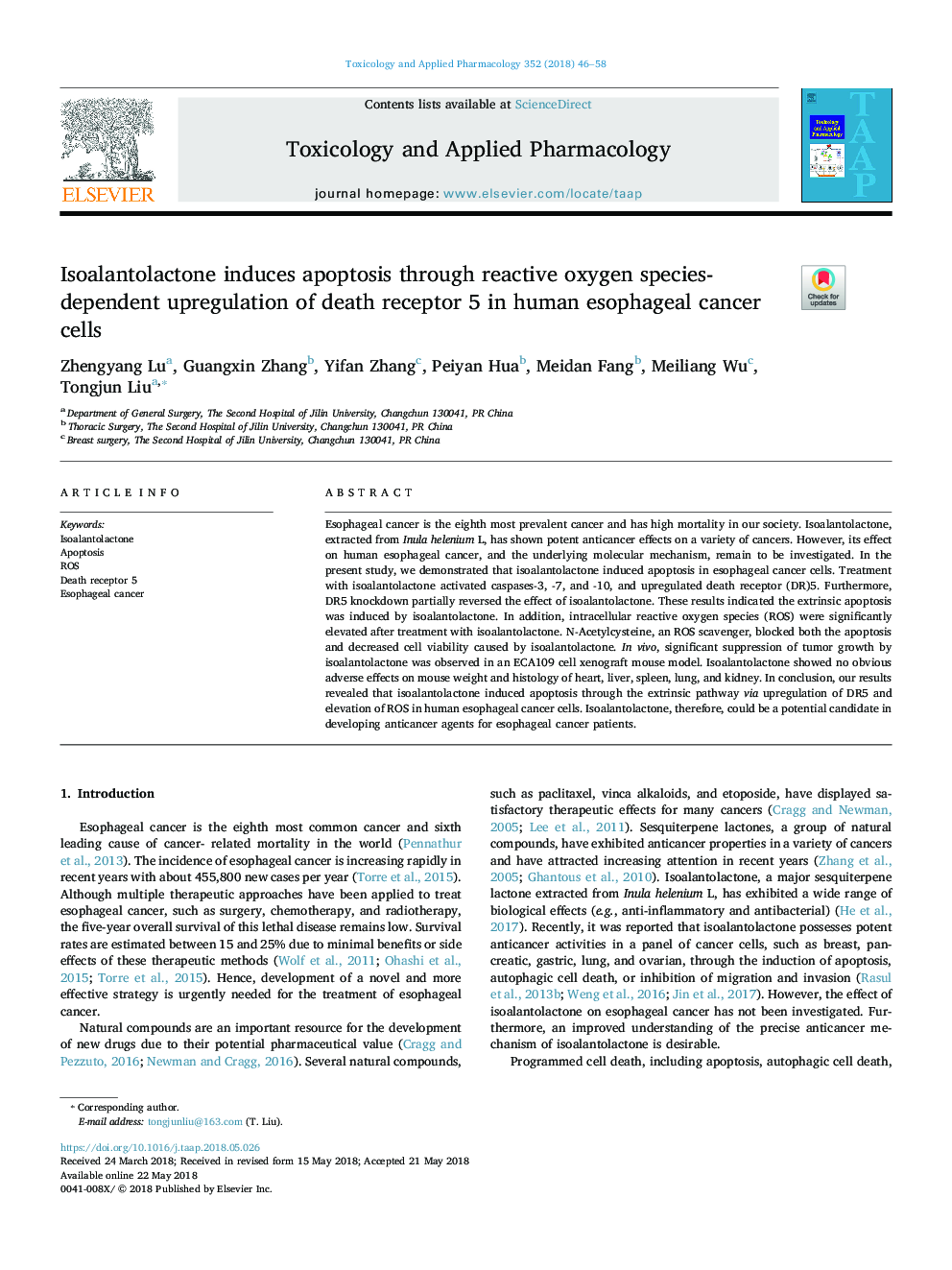| Article ID | Journal | Published Year | Pages | File Type |
|---|---|---|---|---|
| 8538357 | Toxicology and Applied Pharmacology | 2018 | 13 Pages |
Abstract
Esophageal cancer is the eighth most prevalent cancer and has high mortality in our society. Isoalantolactone, extracted from Inula helenium L, has shown potent anticancer effects on a variety of cancers. However, its effect on human esophageal cancer, and the underlying molecular mechanism, remain to be investigated. In the present study, we demonstrated that isoalantolactone induced apoptosis in esophageal cancer cells. Treatment with isoalantolactone activated caspases-3, -7, and -10, and upregulated death receptor (DR)5. Furthermore, DR5 knockdown partially reversed the effect of isoalantolactone. These results indicated the extrinsic apoptosis was induced by isoalantolactone. In addition, intracellular reactive oxygen species (ROS) were significantly elevated after treatment with isoalantolactone. N-Acetylcysteine, an ROS scavenger, blocked both the apoptosis and decreased cell viability caused by isoalantolactone. In vivo, significant suppression of tumor growth by isoalantolactone was observed in an ECA109 cell xenograft mouse model. Isoalantolactone showed no obvious adverse effects on mouse weight and histology of heart, liver, spleen, lung, and kidney. In conclusion, our results revealed that isoalantolactone induced apoptosis through the extrinsic pathway via upregulation of DR5 and elevation of ROS in human esophageal cancer cells. Isoalantolactone, therefore, could be a potential candidate in developing anticancer agents for esophageal cancer patients.
Related Topics
Life Sciences
Environmental Science
Health, Toxicology and Mutagenesis
Authors
Zhengyang Lu, Guangxin Zhang, Yifan Zhang, Peiyan Hua, Meidan Fang, Meiliang Wu, Tongjun Liu,
